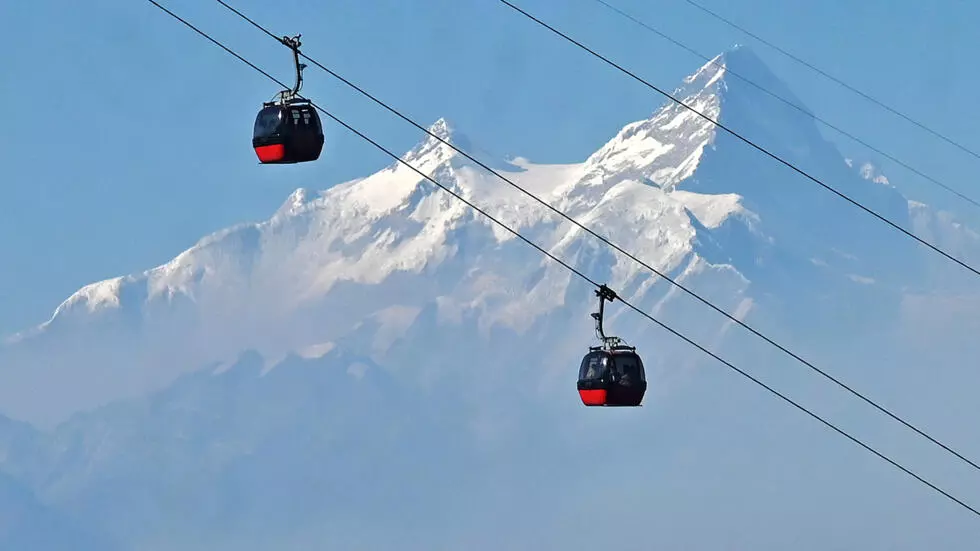Shambhala: Nepal’s First Oscar Contender to Premiere at BFI London After Berlin Festival Triumph

Kathmandu — Nepal’s cinematic scene has taken a historic step with the release of Shambhala, the country’s first-ever recommendation for an Oscar nomination. Directed by Min Bahadur Bham, this visually stunning and spiritually profound film has already achieved international acclaim and continues to leave an indelible mark on audiences worldwide.
Premiering on September 13, 2024, in Nepal, Shambhala has garnered strong public interest and is doing remarkably well at the box office. The film’s impact extends beyond Nepal, as it is set to screen at the prestigious London Film Festival starting from October 9 for a limited run. Previously, it became the first Nepali film to be selected for the Berlin Film Festival, marking a significant milestone for the country’s burgeoning film industry. Lead actress Thinley Lhamo also brought international recognition to the project, having won the Boccalino d’Oro Prize for best actress at the Locarno Film Festival.
A Journey of Spirit and Society
At its heart, Shambhala is more than just a film; it is an exploration of inner peace, societal expectations, and spiritual awakening. The movie’s title is inspired by the concept of Shambhala from Tibetan Buddhism—a mythical kingdom believed to be a place of wisdom, compassion, and enlightenment. Though often viewed as a metaphor, Shambhala symbolizes a journey toward inner balance and peace, teaching that real tranquility comes from within through spiritual growth and self-awareness.
The story follows Pema, the protagonist, as she embarks on a perilous journey to find her missing husband, Tashi. Set against the breathtaking yet treacherous landscapes of the Nepali Himalayas, the journey begins as a physical one but soon deepens into a spiritual odyssey. Pema confronts external hardships posed by nature and the harsh realities of societal and cultural norms, reflecting her internal struggles with her identity, societal roles, and spiritual growth.
Themes of Patriarchy and Tradition
Shambhala stands out for its bold critique of patriarchal norms in traditional Nepali culture. Pema is part of a polyandrous marriage—an ancient practice where a woman marries multiple brothers. Despite this cultural norm, the film quickly exposes the double standards Pema faces. While society accepts her multiple husbands, she is judged harshly for any suggestion of infidelity. Through her story, the film powerfully portrays the limitations imposed on women by patriarchal structures, drawing parallels to struggles faced by women in similar societies around the world.
The film also provides a nuanced exploration of rural Nepali life and traditions. One of the most striking scenes features Pema participating in an archery competition to prove her innocence against allegations of adultery. This practice, steeped in local superstition and tradition, serves as a poignant example of how women are forced to navigate a patriarchal system designed to control and judge them.
Buddhist Philosophy and the Quest for Inner Peace
Central to the film’s narrative is Buddhist philosophy, which permeates every aspect of Pema’s journey. The teachings of impermanence, compassion, and self-liberation are woven throughout the film, showing how Pema’s quest transcends the physical world and becomes a spiritual journey. Her evolution from a woman defined by societal expectations to one who seeks and achieves inner peace reflects core Buddhist beliefs about the nature of suffering and personal growth.
Pema’s quest is ultimately about more than finding Tashi. It becomes a journey of self-discovery and inner transformation. By accepting life’s impermanence and embracing compassion for herself, she finds the strength to let go of her past and societal judgments. The quiet, powerful scenes of Pema walking through empty Himalayan landscapes highlight the transient nature of human life against the backdrop of unchanging natural beauty.



















Facebook Comments